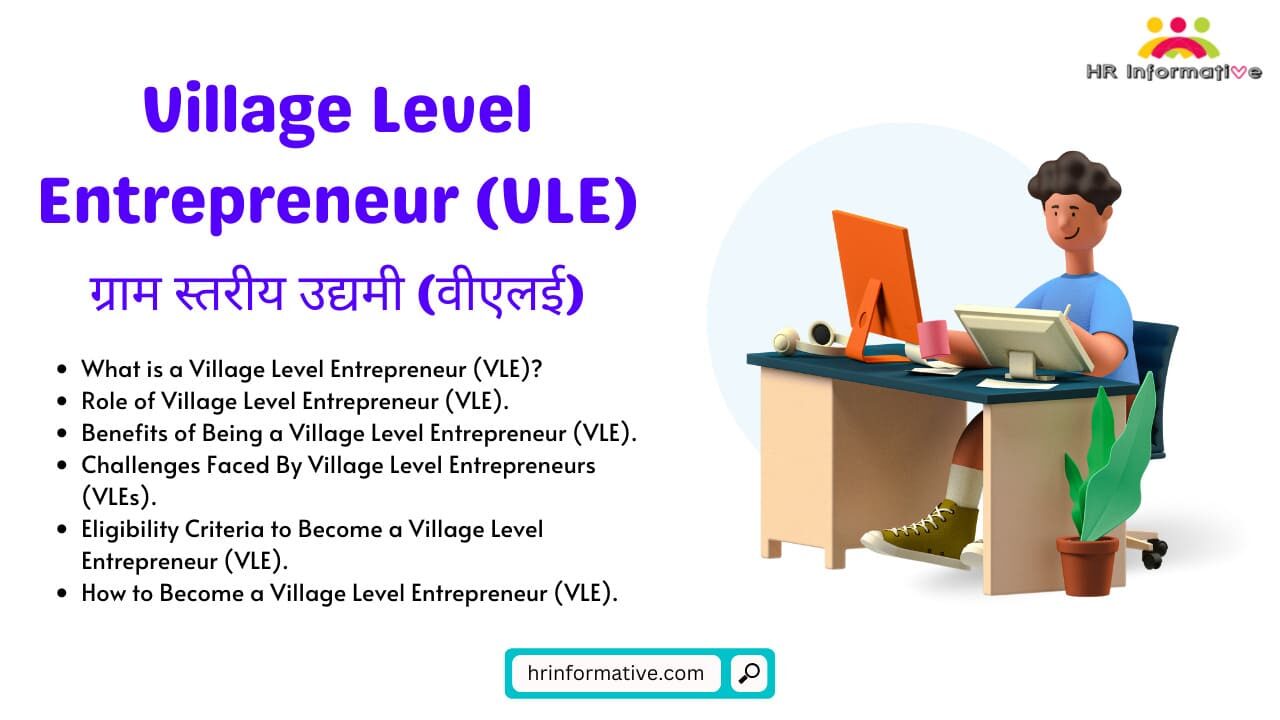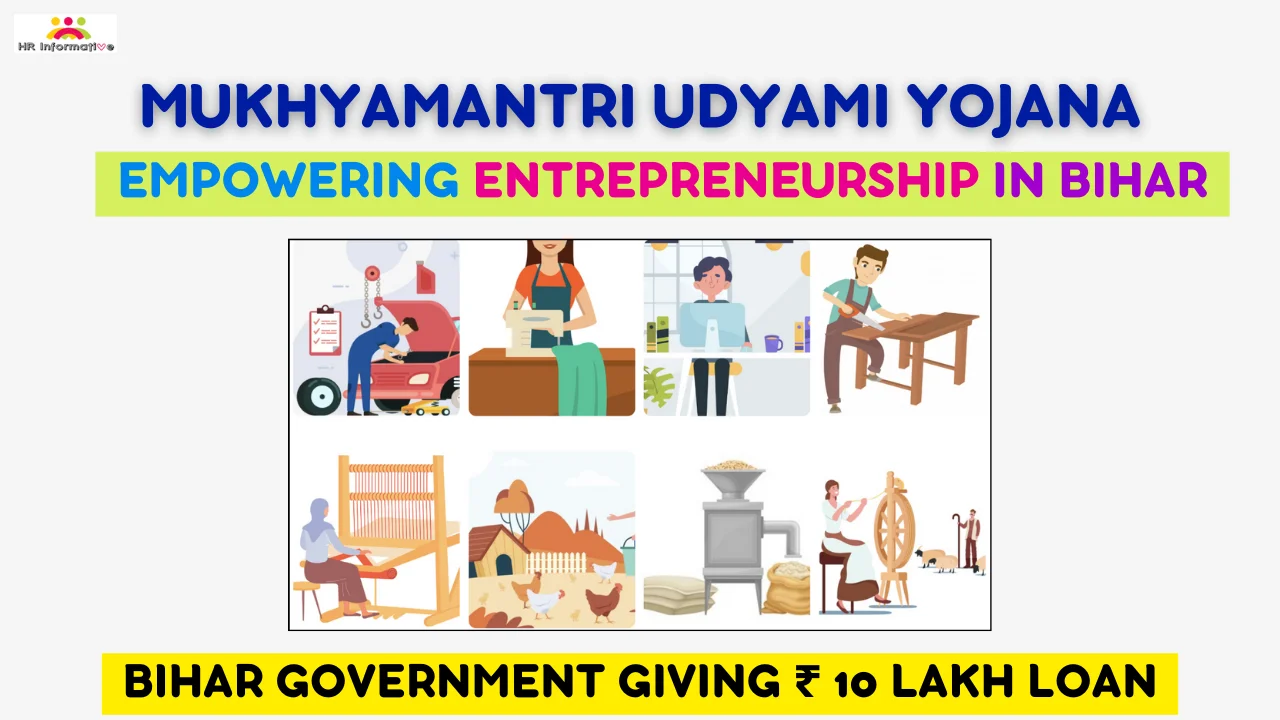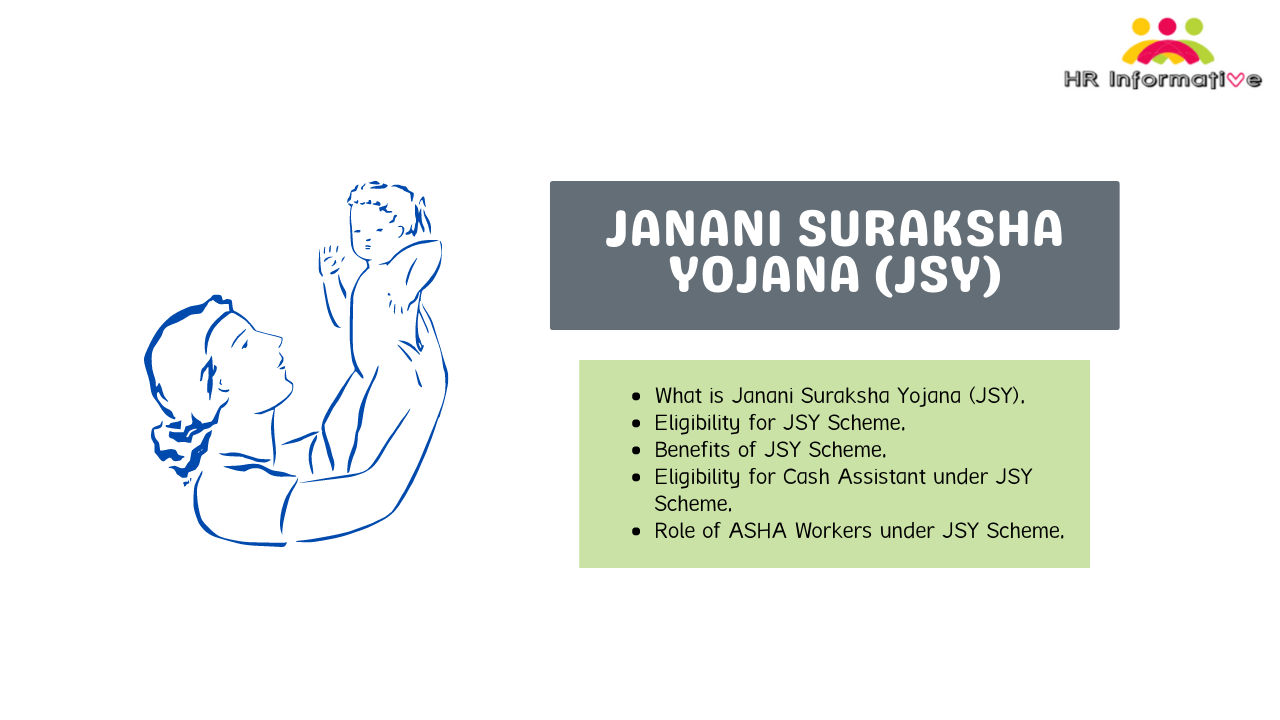In today’s digital world, where technology is changing the face of business and commerce, the Indian government has taken a bold step in bridging the digital divide between rural and urban areas. This initiative has been taken to enable the rural population to access a wide range of services and benefits through the use of technology. One of the key components of this initiative is the creation of Village Level Entrepreneurs (VLEs) who play a crucial role in bringing digital services to the doorsteps of rural India.
In this article, we will give you complete information about Village Level Entrepreneur (VLE). Please read this article till the end to get the complete information.
What is a Village Level Entrepreneur (VLE)?
A Village Level Entrepreneur (VLE) is a person who has been authorized by the government to provide digital services to the rural population from Common Service Centre (CSC) outlets. These services include government schemes, financial services, healthcare services, education services, and other essential services. The VLEs have been trained and equipped with the necessary technology and equipment to provide these services.
Role of Village Level Entrepreneur (VLE) in India
The role of Village Level Entrepreneur (VLE) in India is to provide digital services to residents of rural areas and to contribute to the development of these areas. VLEs play a crucial role in bridging the digital divide between urban and rural areas and bringing essential services closer to rural residents.
Some of the key responsibilities of VLEs in India include:
1. Providing Digital Services
VLEs provide a range of digital services, including e-governance services, banking and financial services, health services, education services, and other services that can improve the quality of life of rural residents.
2. Creating Employment Opportunities
By setting up a Common Service Center (CSC), VLEs create employment opportunities for themselves and others in their village. This helps to stimulate the local economy and provides a source of income for rural residents.
3. Improving Access to Information
VLEs provide rural residents with access to information and services that they may not have otherwise had access to. This can include information on government schemes and programs, health information, and educational resources.
4. Building Digital Literacy
By providing digital services, VLEs help to build digital literacy in rural areas. This helps to increase the understanding and use of technology among rural residents, which can have a positive impact on their quality of life.
5. Contributing to Rural Development
VLEs play a crucial role in contributing to the development of rural areas by providing essential services and creating employment opportunities. By doing so, they help to improve the quality of life of rural residents and contribute to the overall development of rural areas.
Benefits of Being a Village Level Entrepreneur (VLE)
Being a Village Level Entrepreneur (VLE) can bring many benefits, both personal and professional. Here are some of the key benefits of being a VLE:
1. Financial Independence
VLEs can earn a steady income by providing digital services to their communities. This can help to improve their financial stability and provide them with greater financial independence.
2. Entrepreneurial Skills
VLEs develop important entrepreneurial skills such as marketing, sales, and customer service. These skills can be applied to other business ventures and can help to create a sustainable livelihood for VLEs.
3. Community Leadership
VLEs play a crucial role in their communities as leaders who are providing essential services and creating job opportunities. This can bring a sense of pride and recognition and can help VLEs to become respected members of their communities.
4. Digital Literacy
VLEs receive training in digital literacy and are equipped with the knowledge and skills to provide digital services. This helps to increase their digital literacy and can provide them with greater access to information and opportunities in the digital world.
5. Career Advancement
VLEs can use their experiences and skills to advance their careers and explore new business opportunities. They can also use their entrepreneurial skills to start their own businesses and create job opportunities for others in their communities.
6. Empowerment
VLEs play a crucial role in empowering their communities by providing essential services and improving access to information and opportunities. This has the potential to improve the standard of living in rural areas and create a more inclusive and equitable society.
How to Registration Online for VLE, Eligibility Criteria and Documents Required
Challenges Faced By Village Level Entrepreneurs (VLEs)
Village Level Entrepreneurs (VLEs) in India face a number of challenges that can hinder their ability to provide digital services and contribute to rural development. Some of the key challenges faced by VLEs in India include:
1. Lack of Awareness
Many rural residents are not aware of the services that VLEs provide, which makes it difficult for VLEs to build a customer base. This lack of awareness also makes it challenging for VLEs to attract new customers and generate income.
2. Limited Infrastructure
Rural areas in India often lack the infrastructure necessary to provide digital services. This includes a lack of reliable electricity and internet connectivity, which can make it difficult for VLEs to provide services and reach customers.
3. Competition
VLEs face competition from other digital service providers, including private companies, which can make it difficult for VLEs to attract and retain customers.
4. Lack of Technical Skills
Some VLEs lack the technical skills necessary to provide digital services, which can lead to errors and customer dissatisfaction. This can be a challenge for VLEs, especially if they are not able to receive adequate training and support from the government or private sector.
5. Financial Constraints
VLEs often face financial constraints, including the cost of setting up a Common Service Center (CSC) and purchasing equipment and software. This can make it difficult for VLEs to generate sufficient income to sustain their businesses.
6. Limited Support
VLEs can sometimes face limited support from the government and private sector, which can make it difficult for them to overcome the challenges they face and provide quality digital services.
Eligibility Criteria to Become a Village Level Entrepreneur (VLE)
To become a Village Level Entrepreneur (VLE), one must meet certain eligibility criteria set by the government. The eligibility criteria vary from state to state, but the following are some of the common criteria that must be met:
1. Age
The VLE must be at least 18 years of age.
2. Educational Qualifications
The minimum educational qualification required for a VLE is usually 10th or 12th standard, although higher qualifications are preferred. In some cases, a degree or diploma in a relevant field such as computer science, business administration, or rural development may also be required.
3. Residence
The VLE must be a resident of the village or community where the Common Service Centre (CSC) is located. This is to ensure that the VLE has a good understanding of the local community and its needs.
4. Background Check
The VLE should have a clean criminal record and should not have been convicted of any criminal offense.
5. Technical Knowledge
The VLE should have a basic understanding of computers, internet, and other technologies used in the CSC. They may also need to be trained on specific software and hardware used in the CSC.
6. Financial Stability
The VLE should have a stable source of income and should be able to invest in setting up a Common Service Center (CSC).
8. Entrepreneurial Skills
The VLE should have basic entrepreneurial skills, such as the ability to manage a business, market services, and provide customer support.
9. Financial Management Skills
The VLE should have basic financial management skills, including the ability to manage cash flows and maintain accurate financial records.
10. Communication Skills
The VLE should have good communication skills, both written and verbal, in the local language as well as in English.
How to Become a Village Level Entrepreneur (VLE)
The process for becoming a VLE may vary based on the location and services offered at the CSC. It is recommended that you consult with the government agency responsible for implementing the CSC scheme in your area for specific details on the process for becoming a VLE.
To become a Village Level Entrepreneur (VLE) in India, you can follow the steps below:
1. Research
Research the Common Service Centre (CSC) scheme and the services offered in your area. You can do this by visiting the official CSC website or by speaking with local officials or existing VLEs.
2. Meet Eligibility Criteria
Ensure that you meet the eligibility criteria for becoming a VLE, which typically include minimum educational qualifications, residency in the village or community where the CSC is located, and basic entrepreneurial and technical skills.
3. Apply for the VLE Program
Contact the designated government agency responsible for implementing the CSC scheme in your area to apply for the VLE program. You may be required to submit a written application, provide proof of residency and educational qualifications, and attend an interview.
4. Complete Training
If your application is successful, you will be required to complete training on the services offered at the CSC, as well as on business and financial management. This training will be provided by the government or its designated agency.
5. Set Up the CSC
Once you have completed the training, you can set up the CSC and start providing services to the local community. This will typically involve purchasing or leasing equipment, setting up the CSC infrastructure, and marketing the services to the local community.
6. Maintain the CSC
To ensure the long-term success of the CSC, you will need to maintain the infrastructure, provide quality customer service, and continuously update your skills and knowledge.
Conclusion
In conclusion, the creation of Village Level Entrepreneurs (VLEs) is a bold step taken by the Indian government to bridge the digital divide between rural and urban areas. VLEs are playing a crucial role in bringing digital services to the doorsteps of rural India, empowering the rural population and fostering entrepreneurship. Despite the challenges faced by VLEs, they are contributing to the development of rural areas and helping to create new job opportunities.
FAQs
Q: What is the full form of VLE?
Ans: VLE means Village Level Entrepreneur.
Q: Who are VLEs?
Ans: VLEs are Village Level Entrepreneurs who provide various government and non-government services to end consumers from CSC outlets.
Q: What is the minimum age to become a VLE?
Ans: The minimum age to become a VLE should be 18 years.
Related Posts :
- E-Shram Card Details, Benefits, Eligibility, Online Registration
- Pradhan Mantri Kisan Samman Nidhi (PM-Kisan) Objective, Features, Eligibility, Online Registration
- Pradhan Mantri Kisan Maandhan Yojana (PMKMY) Eligibility, Benefits, Enroll Process
- Pradhan Mantri Awas Yojana (PMAY) Eligibility, Benefits
- Pradhan Mantri Vaya Vandana Yojana (PMVVY) Eligibility, Benefits, Apply Online



